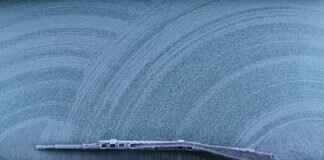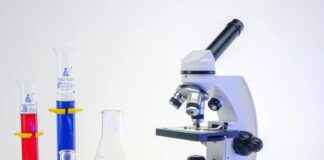In today’s rapidly evolving financial landscape, FintechZoom.io has emerged as a pivotal platform for investors and industry professionals alike. This article delves into the significance of FintechZoom.io within the realm of financial technology and explores why it has garnered immense interest from investors around the globe.
FintechZoom.io is not just another news outlet; it is a comprehensive platform that aggregates the latest insights, news, and analyses pertaining to financial technology. With a user-friendly interface and a wealth of information, it serves as a crucial resource for investors seeking to navigate the complex world of fintech.
The platform offers real-time updates on market trends, regulatory changes, and emerging technologies, making it an indispensable tool for those looking to make informed investment decisions. Investors can access a variety of content, including articles, interviews, and research reports, all tailored to meet the needs of a diverse audience.
The fintech sector has witnessed unprecedented growth over the past decade. Factors such as increased smartphone penetration, the rise of digital banking, and advancements in artificial intelligence have contributed to this boom. FintechZoom.io is at the forefront of this transformation, providing insights into how these changes are reshaping the financial industry.
As traditional financial institutions adapt to the digital age, platforms like FintechZoom.io are essential for understanding the competitive landscape. Investors are particularly interested in how fintech companies are leveraging technology to enhance customer experiences, streamline operations, and reduce costs.
- Digital Banking: The shift towards digital banking is one of the most significant trends in fintech. Digital banks offer lower fees, enhanced convenience, and personalized services, appealing to a tech-savvy clientele.
- Blockchain Technology: Blockchain is revolutionizing the way transactions are conducted. Its decentralized nature enhances security and transparency, making it a cornerstone of many fintech innovations.
- AI-Driven Financial Services: Artificial intelligence is being integrated into various financial services, from robo-advisors to fraud detection, allowing for more efficient and accurate operations.
The fintech sector presents a plethora of investment opportunities. From startups to established firms, investors have a wide range of options to consider. FintechZoom.io provides detailed analyses of potential investments, helping investors identify the best opportunities based on market trends and company performance.
Additionally, sectors such as payment processing, lending platforms, and investment technology are ripe for investment. The platform’s comprehensive research reports and expert insights equip investors with the knowledge needed to make strategic decisions.
FintechZoom.io has become a go-to hub for investors due to its extensive resources and insightful content. The platform’s unique offerings, such as real-time market analysis and expert commentary, attract a diverse audience.
The user-friendly interface enhances the experience for both novice and seasoned investors. With easy navigation and access to a wealth of information, users can quickly find the insights they need to stay ahead in the fast-paced fintech market.
One of the standout features of FintechZoom.io is its focus on expert insights. The platform regularly features interviews with industry leaders and in-depth research reports that provide valuable perspectives on market developments.
These insights are crucial for investors looking to refine their strategies and stay informed about the latest trends. By leveraging expert analysis, investors can make more informed decisions that align with their financial goals.
Community engagement is another vital aspect of FintechZoom.io. The platform fosters a sense of community among investors through forums and discussion boards, where users can share insights and experiences.
Participating in webinars and events hosted by FintechZoom.io further enhances investor knowledge, keeping them informed about industry developments and networking opportunities.
Looking ahead, the future of FintechZoom.io appears bright. As the fintech landscape continues to evolve, the platform is poised to adapt and expand its offerings to meet the needs of its growing audience. Potential developments may include enhanced analytical tools, more comprehensive research reports, and increased community engagement initiatives.
In conclusion, FintechZoom.io stands as a beacon in the fintech sector, providing invaluable resources for investors. Its commitment to delivering timely information and fostering community engagement ensures it will remain a key player in the financial technology landscape for years to come.

Understanding FintechZoom.io
FintechZoom.io is an innovative platform designed to cater to the evolving needs of investors and financial technology enthusiasts. As the fintech landscape rapidly changes, this platform serves as a vital resource for those seeking to stay informed about the latest trends, news, and analysis in the financial technology sector. By combining a user-friendly interface with comprehensive content, FintechZoom.io has positioned itself as a go-to destination for investors looking to navigate the complexities of the fintech world.
At its core, FintechZoom.io is dedicated to providing timely insights that empower investors to make informed decisions. The platform offers a variety of resources, including articles, reports, and expert analyses that cover a broad spectrum of topics within the fintech industry. Whether it’s the latest developments in digital banking, advancements in blockchain technology, or trends in artificial intelligence, FintechZoom.io ensures that investors have access to the information they need to capitalize on emerging opportunities.
One of the standout features of FintechZoom.io is its commitment to real-time updates. In a fast-paced industry like fintech, having access to up-to-the-minute information is crucial. Investors can rely on FintechZoom.io to provide breaking news and market analysis that can influence their investment strategies. This immediacy not only enhances decision-making but also fosters a deeper understanding of market dynamics.
Moreover, FintechZoom.io emphasizes the importance of community engagement. The platform hosts forums and discussion boards where investors can connect, share insights, and discuss market trends. This collaborative environment is invaluable for both novice and seasoned investors, as it encourages the exchange of ideas and fosters a sense of belonging within the fintech community.
| Features of FintechZoom.io | Description |
|---|---|
| Real-Time Market Analysis | Access to live updates and market trends that inform investment decisions. |
| User-Friendly Interface | A well-designed platform that enhances the user experience for all levels of investors. |
| Expert Insights | In-depth analyses and commentary from industry leaders and experts. |
| Community Engagement | Forums and webinars that foster networking and collaboration among investors. |
Additionally, FintechZoom.io features exclusive interviews with industry leaders, providing unique insights into the future of fintech. These interviews not only highlight the perspectives of key figures in the industry but also help investors understand potential market shifts and emerging technologies. Such expert commentary can significantly influence investment strategies, making it a valuable asset for users of the platform.
Furthermore, the platform offers in-depth research reports that delve into various aspects of the fintech sector. These reports are meticulously crafted to ensure that investors receive comprehensive analyses that are grounded in reliable data and expert opinions. By providing access to such detailed information, FintechZoom.io empowers investors to make well-informed decisions that align with their financial goals.
In summary, FintechZoom.io is more than just a news platform; it is a comprehensive resource that equips investors with the tools and knowledge necessary to thrive in the ever-evolving fintech landscape. With its focus on real-time updates, expert insights, and community engagement, FintechZoom.io has become an essential hub for anyone looking to navigate the complexities of financial technology.

The Rise of Financial Technology
Financial technology, commonly referred to as fintech, has dramatically transformed the financial services landscape. The advent of digital solutions has not only streamlined traditional banking processes but has also introduced innovative services that cater to a tech-savvy consumer base. This section will explore the various factors contributing to the rapid growth of fintech and how platforms like FintechZoom.io are leading the charge in this dynamic sector.
The shift towards fintech can be attributed to several key factors:
- Consumer Demand for Convenience: Today’s consumers prioritize convenience and speed. Fintech solutions, such as mobile banking apps and digital wallets, allow users to manage their finances on-the-go. This demand for instant access to financial services has propelled the growth of fintech startups and solutions.
- Technological Advancements: The proliferation of smartphones and high-speed internet has made it easier for fintech companies to reach a global audience. Technologies such as artificial intelligence (AI), machine learning, and blockchain play a pivotal role in enhancing service delivery and security.
- Regulatory Support: Governments and regulatory bodies around the world are increasingly recognizing the importance of fintech. Initiatives such as regulatory sandboxes allow startups to test their innovations in a controlled environment, fostering growth and innovation.
- Increased Investment: Venture capitalists and institutional investors are pouring billions into the fintech sector. This influx of capital supports innovation and allows companies to scale their operations rapidly.
FintechZoom.io stands out as a vital resource in this evolving landscape. By providing timely news, expert analysis, and comprehensive insights into the fintech industry, it helps investors and consumers navigate this complex environment. The platform’s ability to aggregate information from various sources allows users to stay informed about the latest trends and developments.
Among the notable trends reshaping the fintech landscape are:
- Digital Banking: The emergence of digital banks has revolutionized the banking experience. Unlike traditional banks, digital banks operate entirely online, offering lower fees and enhanced customer service. They cater to a younger demographic that prefers digital interactions over in-person visits.
- Blockchain Technology: As a foundational technology for many fintech applications, blockchain enhances security and transparency in financial transactions. Its decentralized nature reduces fraud and increases trust among users.
- Artificial Intelligence: AI is transforming how financial services are delivered. From personalized investment advice to automated customer service, AI-driven solutions improve efficiency and user experience.
Furthermore, the rise of peer-to-peer lending platforms and crowdfunding sites has democratized access to capital, allowing individuals and small businesses to secure funding without traditional banking intermediaries. This shift not only empowers borrowers but also provides investors with new avenues for diversification.
As fintech continues to evolve, it is clear that platforms like FintechZoom.io are essential for keeping pace with these changes. By offering real-time market insights and expert commentary, FintechZoom.io equips investors with the tools they need to make informed decisions in a rapidly changing environment.
In summary, the rise of financial technology is driven by consumer demand, technological advancements, regulatory support, and significant investment. As this sector continues to grow, platforms like FintechZoom.io will remain at the forefront, providing invaluable resources for investors and consumers alike.
Key Trends in Fintech
In the rapidly evolving world of finance, identifying key trends in fintech is essential for investors aiming to stay ahead of the curve. As technology continues to integrate with financial services, several significant trends are emerging, reshaping the landscape and offering new opportunities for growth and innovation. This section delves into three pivotal trends: digital banking, blockchain technology, and AI-driven financial services.
- Digital Banking
- User-friendly interfaces: Simplified navigation and streamlined services enhance the customer experience.
- 24/7 access: Customers can manage their finances anytime and anywhere, increasing convenience.
- Innovative features: Many digital banks provide budgeting tools, savings goals, and instant notifications to help users manage their finances effectively.
- Blockchain Technology
- Security: Each transaction is encrypted and linked to the previous one, making it nearly impossible to alter past records.
- Cost efficiency: By eliminating intermediaries, blockchain reduces transaction costs and speeds up processing times.
- Smart contracts: These self-executing contracts with the terms of the agreement directly written into code streamline processes and reduce the need for manual intervention.
- AI-Driven Financial Services
- Robo-advisors: Automated platforms that provide financial advice based on algorithms, making investing accessible to a broader audience.
- Fraud detection: AI systems analyze transaction patterns in real-time to identify suspicious activities and mitigate fraud risk.
- Customer service: Chatbots and virtual assistants provide 24/7 support, answering queries and guiding users through processes seamlessly.
The ascent of digital banking represents a profound shift in how consumers interact with financial institutions. Digital banks, often referred to as neobanks, operate entirely online without physical branches. This model allows them to offer lower fees and higher interest rates on deposits compared to traditional banks. Key features of digital banking include:
Blockchain technology, the backbone of cryptocurrencies, is revolutionizing the way transactions are conducted. Its decentralized nature ensures enhanced security and transparency, making it ideal for various financial applications. Here are some critical aspects of blockchain’s impact:
Artificial Intelligence (AI) is transforming financial services by enabling more personalized and efficient customer experiences. AI applications in fintech are vast, and some notable examples include:
As these trends continue to evolve, they will undoubtedly create new investment opportunities and challenges for market participants. Investors must remain vigilant and adaptable, leveraging platforms like FintechZoom.io to stay informed about these developments. Understanding the implications of digital banking, blockchain technology, and AI-driven services will be crucial for making informed investment decisions in the fintech space.
Digital Banking Revolution
The Digital Banking Revolution is reshaping the financial landscape, presenting both opportunities and challenges for consumers and traditional banking institutions alike. Digital banks, often referred to as neobanks or challenger banks, operate primarily online without the physical branches that characterize traditional banks. This shift towards digital banking has been accelerated by technological advancements and changing consumer preferences, leading to a significant transformation in how banking services are delivered and consumed.
Digital banks are designed to offer a seamless experience through user-friendly interfaces and innovative features. They leverage technology to provide services such as online account opening, mobile payments, and instant fund transfers, often with lower fees compared to traditional banks. This section delves into how digital banks operate, their advantages, and their impact on the traditional banking sector.
Digital banks function on a cloud-based infrastructure, allowing them to minimize operational costs and pass savings onto customers. Unlike traditional banks, which rely on brick-and-mortar locations, digital banks utilize mobile apps and websites to interact with customers. This operational model enables them to offer services 24/7, catering to the needs of a tech-savvy population.
- Account Management: Customers can manage their accounts entirely online, from opening new accounts to applying for loans.
- Instant Transactions: Digital banks enable real-time transactions, allowing users to send and receive money instantly, enhancing convenience.
- Personalized Services: Utilizing data analytics, digital banks can offer tailored financial advice and product recommendations.
Digital banks offer numerous advantages that appeal to a broad range of consumers:
| Advantage | Description |
|---|---|
| Lower Fees | Many digital banks charge no monthly maintenance fees and offer free transactions, making banking more affordable. |
| Convenience | With services available online or via mobile apps, customers can conduct banking activities from anywhere, at any time. |
| Enhanced Security | Digital banks often employ advanced security measures, including encryption and two-factor authentication, to protect customer data. |
| Innovative Features | Many digital banks offer unique features such as budgeting tools, spending analysis, and instant notifications for transactions. |
The rise of digital banks has prompted traditional banking institutions to reevaluate their business models. As consumers increasingly gravitate towards the convenience and cost-effectiveness of digital banking, traditional banks face pressure to innovate and enhance their services. This competition has led to several key changes:
- Investment in Technology: Traditional banks are investing heavily in technology to improve their digital offerings and customer experience.
- Partnerships with Fintechs: Many banks are collaborating with fintech companies to integrate advanced technologies and services.
- Focus on Customer Experience: To retain customers, traditional banks are prioritizing customer service and personalized experiences.
In conclusion, the digital banking revolution is a significant shift in the financial sector, characterized by the rise of online banks that offer innovative, cost-effective solutions for consumers. As digital banks continue to grow, their influence on traditional banking practices will likely lead to a more competitive and customer-focused financial landscape.
Blockchain Technology’s Impact
Blockchain technology has emerged as a transformative force in the financial technology (fintech) sector, significantly enhancing various aspects of financial transactions. Its decentralized nature and cryptographic security protocols provide unparalleled security, transparency, and efficiency in processing transactions. In this section, we will delve into the multifaceted impact of blockchain technology on the financial landscape, exploring its benefits, challenges, and future potential.
Enhancing Security in Financial Transactions
One of the most notable advantages of blockchain technology is its ability to enhance security. Traditional financial systems often rely on central authorities and intermediaries, which can be vulnerable to fraud and cyberattacks. In contrast, blockchain operates on a decentralized network of nodes, where each transaction is recorded on a public ledger that is immutable and transparent.
- Cryptographic Security: Transactions are secured through advanced cryptographic techniques, making it nearly impossible for unauthorized users to alter transaction data.
- Decentralization: The absence of a central authority reduces the risk of single points of failure, enhancing the overall security of the financial system.
- Real-Time Monitoring: Continuous monitoring of transactions on the blockchain allows for immediate detection of suspicious activities, enabling quicker responses to potential threats.
Promoting Transparency in Financial Operations
Transparency is another critical benefit of blockchain technology. All transactions recorded on a blockchain are visible to all participants in the network, fostering trust among users. This transparency can significantly reduce the opportunities for fraud and corruption.
| Aspect | Traditional Systems | Blockchain Systems |
|---|---|---|
| Visibility | Limited to authorized parties | Publicly accessible to all participants |
| Data Integrity | Susceptible to alterations | Immutable once recorded |
| Auditability | Complex and time-consuming | Instant and straightforward |
This level of transparency not only builds trust among consumers but also simplifies compliance with regulatory requirements. Financial institutions can easily provide proof of transactions, enhancing their ability to adhere to anti-money laundering (AML) and know your customer (KYC) regulations.
Increasing Efficiency in Transactions
Blockchain technology also streamlines financial transactions, making them faster and more efficient. Traditional banking processes often involve multiple intermediaries, leading to delays and increased costs. In contrast, blockchain enables peer-to-peer transactions without the need for intermediaries.
- Reduced Transaction Costs: By eliminating intermediaries, blockchain reduces transaction fees, making financial services more accessible to a broader audience.
- Faster Settlement Times: Transactions can be settled in real-time or within minutes, compared to traditional systems that may take days to finalize.
- Automation through Smart Contracts: Blockchain supports smart contracts, which are self-executing contracts with the terms directly written into code. This automation reduces the need for manual intervention, further enhancing efficiency.
Challenges and Considerations
Despite its many advantages, blockchain technology also faces several challenges that must be addressed for it to achieve widespread adoption in the financial sector:
- Scalability: As the number of transactions increases, maintaining speed and efficiency on the blockchain can become challenging.
- Regulatory Uncertainty: The evolving regulatory landscape surrounding blockchain and cryptocurrencies can create uncertainty for financial institutions.
- Energy Consumption: Some blockchain networks, particularly those using proof-of-work consensus mechanisms, have faced criticism for their high energy consumption.
In conclusion, blockchain technology is reshaping the financial landscape by enhancing security, promoting transparency, and increasing efficiency in financial transactions. As the technology continues to evolve, it holds the potential to address existing challenges and unlock new opportunities for innovation in the fintech sector.
Investment Opportunities in Fintech
As the financial landscape continues to evolve, investors are increasingly turning their attention to the fintech sector. This burgeoning field offers a plethora of opportunities, ranging from innovative startups to established firms and cutting-edge technologies. In this section, we will explore the various investment avenues within the fintech space, highlighting the potential for growth and profitability.
1. Startups: The Vanguard of Innovation
Investing in fintech startups can be both thrilling and rewarding. These companies often introduce disruptive technologies that challenge traditional financial services. Startups in areas such as peer-to-peer lending, mobile payments, and robo-advisors are gaining traction. For instance, companies like Robinhood have democratized stock trading, allowing users to invest without paying commissions. Such innovations not only attract users but also present lucrative investment opportunities.
- Peer-to-Peer Lending: Platforms like LendingClub have revolutionized personal loans by connecting borrowers directly with investors, bypassing traditional banks.
- Mobile Payment Solutions: Companies such as Square and PayPal have transformed how consumers and businesses conduct transactions, making them attractive investment options.
- Robo-Advisors: Automated investment platforms like Wealthfront and Betterment are appealing to a younger demographic, offering low-cost investment management.
2. Established Companies: Stability and Growth
For investors seeking more stability, established fintech companies present a solid option. These firms have already proven their business models and built a loyal customer base. Companies like Visa and Mastercard continue to innovate, investing heavily in technologies such as blockchain and AI to stay ahead of the curve.
| Company | Market Capitalization | Key Offerings |
|---|---|---|
| Visa | $500 billion | Payment processing, digital wallets |
| Mastercard | $400 billion | Payment solutions, fraud prevention |
| PayPal | $300 billion | Online payments, cryptocurrency support |
3. Emerging Technologies: The Future of Finance
Investors should also keep an eye on emerging technologies within fintech, as these innovations are set to reshape the industry. Technologies such as blockchain, artificial intelligence (AI), and regtech are garnering significant attention.
- Blockchain: This technology underpins cryptocurrencies and is being adopted for secure transactions across various sectors.
- Artificial Intelligence: AI is enhancing customer service in fintech, with chatbots and personalized financial advice becoming commonplace.
- Regtech: Regulatory technology companies are helping financial institutions comply with regulations efficiently, reducing costs and risks.
4. Crowdfunding: A New Avenue for Investment
Crowdfunding platforms have also emerged as a viable investment opportunity in fintech. These platforms allow individuals to invest in startups or projects, often in exchange for equity or rewards. Notable platforms include Kickstarter and Indiegogo, which have successfully funded numerous projects, showcasing the potential of community-driven investment.
5. Conclusion: A Wealth of Opportunities
The fintech sector is ripe with investment opportunities, whether you’re looking at innovative startups, established companies, emerging technologies, or crowdfunding platforms. As the industry continues to grow and evolve, savvy investors who stay informed and agile can capitalize on these trends to maximize their returns.

Why Investors Are Flocking to FintechZoom.io
FintechZoom.io has rapidly emerged as a pivotal resource for investors navigating the complex world of financial technology. With the fintech landscape evolving at breakneck speed, having access to reliable and comprehensive information is crucial. This platform stands out for its unique offerings, making it a favorite among both novice and seasoned investors.
Comprehensive Financial Insights
One of the primary reasons investors are drawn to FintechZoom.io is its extensive range of financial insights. The platform provides a wealth of information, including news articles, market analysis, and expert opinions. This breadth of content allows investors to stay informed about the latest developments in the fintech sector.
- Real-Time Updates: Investors can access real-time updates on market trends, ensuring they never miss crucial information.
- Diverse Content Formats: From articles to videos and podcasts, the platform caters to different learning styles, enhancing user engagement.
User-Friendly Interface
Navigating financial information can often be overwhelming, which is why the user-friendly interface of FintechZoom.io is a significant draw. The platform is designed to be intuitive, allowing users to easily find the information they need without unnecessary complications.
- Easy Navigation: Clear categories and search functionalities enable users to locate specific content quickly.
- Responsive Design: Whether on a desktop or mobile device, the platform maintains its usability, accommodating investors on the go.
Expert Analysis and Commentary
Investors are particularly attracted to the expert analysis available on FintechZoom.io. The platform features in-depth articles and reports authored by industry professionals, providing insights that can significantly influence investment strategies.
- In-Depth Research Reports: These reports delve into market trends, offering detailed analyses that help investors make informed decisions.
- Interviews with Industry Leaders: Exclusive interviews provide unique perspectives on future trends and innovations in fintech.
Community Engagement
Another compelling aspect of FintechZoom.io is its focus on community engagement. The platform fosters a sense of belonging among investors, providing opportunities for networking and collaboration.
- Forums and Discussion Boards: Investors can share experiences, insights, and strategies, creating a collaborative environment that enriches the investing experience.
- Webinars and Events: Regular educational events allow investors to learn from experts and stay updated on industry developments.
Investment Opportunities
FintechZoom.io also serves as a gateway to various investment opportunities within the fintech sector. The platform highlights emerging startups, established companies, and innovative technologies that present lucrative investment prospects.
| Investment Type | Description |
|---|---|
| Startups | Investing in new fintech startups that offer innovative solutions. |
| Established Companies | Opportunities to invest in well-known fintech firms with proven track records. |
| Emerging Technologies | Investing in technologies like blockchain and AI that are reshaping the financial landscape. |
Conclusion
In summary, FintechZoom.io has positioned itself as a vital resource for investors by combining comprehensive insights, expert analysis, community engagement, and diverse investment opportunities. Its user-friendly interface ensures that investors can easily access the information they need to navigate the rapidly changing fintech landscape. As the demand for financial technology continues to grow, platforms like FintechZoom.io will undoubtedly play a crucial role in shaping the future of investing.
Real-Time Market Analysis
In today’s fast-paced financial landscape, has become an indispensable tool for investors. The ability to access up-to-the-minute information on market trends and financial news can significantly influence investment decisions. This is where platforms like FintechZoom.io come into play, providing investors with the tools they need to stay informed and make educated choices.
FintechZoom.io stands out in the crowded fintech space by offering a comprehensive suite of real-time analytics. Investors can benefit from various features that enhance their understanding of market dynamics, including:
- Live Market Data: Investors can access live updates on stock prices, cryptocurrency values, and other financial instruments. This feature allows users to react promptly to market changes.
- News Aggregation: The platform aggregates news from multiple sources, ensuring that investors have a well-rounded view of market developments that could impact their portfolios.
- Market Sentiment Analysis: FintechZoom.io employs advanced algorithms to analyze social media and news sentiment, providing insights into how market participants feel about specific assets.
These features collectively empower investors to make timely decisions, reducing the risk associated with delayed information. For instance, a sudden news event could lead to a rapid price drop in a stock. With real-time alerts from FintechZoom.io, investors can quickly assess the situation and decide whether to buy, hold, or sell their positions.
Moreover, the platform’s user-friendly interface enhances the overall experience. Investors can easily navigate through various sections, from market analysis to investment opportunities, without feeling overwhelmed. This accessibility is particularly beneficial for novice investors who may find traditional financial platforms daunting.
Another crucial aspect of real-time market analysis is the ability to track multiple assets simultaneously. FintechZoom.io allows users to create customized watchlists, enabling them to monitor the performance of their favorite stocks or cryptocurrencies in one place. This feature is vital for investors who diversify their portfolios across different asset classes.
Furthermore, the integration of analytical tools on FintechZoom.io allows investors to conduct in-depth research. Users can leverage charting tools to visualize price movements, analyze historical data, and identify potential entry and exit points for their investments. By combining real-time data with analytical capabilities, investors can formulate strategies that align with their financial goals.
In addition to these features, FintechZoom.io also offers educational resources that help investors understand the significance of real-time analysis. Through webinars, articles, and tutorials, users can learn how to interpret market data effectively and apply it to their investment strategies.
Ultimately, the importance of real-time market analysis cannot be overstated. In a market where conditions can change in seconds, having access to immediate information is crucial for making informed investment decisions. FintechZoom.io not only provides this information but also equips investors with the tools and knowledge necessary to navigate the complexities of the financial landscape.
In conclusion, as more investors recognize the value of real-time market analysis, platforms like FintechZoom.io will continue to gain traction. By offering a combination of live data, analytical tools, and educational resources, FintechZoom.io positions itself as a leader in the fintech space, catering to the needs of both novice and experienced investors alike.
User-Friendly Interface
A user-friendly interface is crucial for any online platform, especially in the fast-paced world of finance. Investors, whether they are novices or seasoned experts, require a seamless experience to navigate complex information and make informed decisions quickly. FintechZoom.io has emerged as a leader in this regard, offering an intuitive design that enhances user experience and accessibility.
The platform’s layout is carefully crafted to ensure that users can easily find the information they need without unnecessary complications. The homepage features a clean design with clear categories, enabling investors to access market news, trends, and analysis with just a few clicks. This streamlined approach not only saves time but also reduces the learning curve for new users.
- Intuitive Navigation: The navigation bar is prominently displayed at the top, featuring dropdown menus that categorize content effectively. Users can quickly switch between sections such as Market Insights, Investment Opportunities, and Expert Analysis.
- Responsive Design: FintechZoom.io is optimized for both desktop and mobile devices, ensuring that users can access the platform anytime, anywhere. This flexibility is particularly beneficial for investors who need to stay updated on market changes while on the go.
- Search Functionality: The integrated search bar allows users to find specific topics or articles efficiently. This feature is essential for investors looking for particular insights or data without sifting through numerous pages.
Moreover, the platform employs a color scheme that is easy on the eyes, reducing strain during extended use. The use of contrasting colors for important alerts and notifications helps users quickly identify critical updates or changes in the market. This thoughtful design choice enhances the overall user experience, making it more enjoyable and less intimidating for beginners.
In addition to visual design, FintechZoom.io offers a range of interactive features that further engage users. For instance, the platform includes real-time data feeds and interactive charts that allow investors to visualize trends and make data-driven decisions. These tools are invaluable for those looking to analyze market movements and identify potential investment opportunities.
| Feature | Description | Benefits |
|---|---|---|
| Intuitive Navigation | Easy access to various sections of the platform | Reduces time spent searching for information |
| Responsive Design | Optimized for both desktop and mobile | Access information anytime, anywhere |
| Interactive Charts | Visual representation of market trends | Facilitates data-driven investment decisions |
Furthermore, user feedback plays a significant role in the continuous improvement of the platform. FintechZoom.io actively encourages users to share their experiences and suggestions, which are then analyzed to implement necessary changes. This commitment to user satisfaction not only enhances the platform’s functionality but also fosters a sense of community among investors.
For those who may require additional assistance, FintechZoom.io provides comprehensive customer support. Users can access a help center filled with FAQs, tutorials, and guides that walk them through various features of the platform. This resource is particularly beneficial for new investors who may feel overwhelmed by the vast amount of information available.
In conclusion, the user-friendly interface of FintechZoom.io is a significant factor in its growing popularity among investors. By prioritizing ease of use, accessibility, and continuous improvement based on user feedback, the platform ensures that both novice and experienced investors can navigate the complexities of the financial world with confidence and efficiency.

Expert Insights and Analysis
FintechZoom.io is revolutionizing how investors approach the financial technology sector by offering a wealth of expert insights and analysis. In a rapidly evolving market, having access to well-researched information can significantly impact investment strategies and decision-making processes. This section delves into the various ways FintechZoom.io provides valuable insights that empower investors.
- Informed Decision-Making: Investors are often faced with a plethora of choices and data. FintechZoom.io curates expert commentary that distills complex information into actionable insights, allowing investors to make informed decisions.
- Market Trends and Predictions: The ability to anticipate market movements is crucial. Through expert analysis, FintechZoom.io highlights emerging trends and provides predictions that can help investors stay ahead of the curve.
- Risk Management: Understanding potential risks is vital for any investment strategy. The expert insights available on FintechZoom.io help investors identify risks associated with various fintech innovations and market shifts.
Interviews with Industry Leaders
One of the standout features of FintechZoom.io is its exclusive interviews with industry leaders. These interviews offer a unique perspective on the future of fintech, providing insights that are often not available through traditional news sources. By engaging with experts who are shaping the industry, investors gain a deeper understanding of the factors driving change.
Key Benefits of Industry Leader Interviews:- Access to insider knowledge- Insights into upcoming technologies- Understanding of competitive dynamics
These interviews not only inform investors about current trends but also shed light on potential future developments. For instance, a recent interview with a leading blockchain innovator discussed how decentralized finance (DeFi) could reshape traditional banking. Such insights are invaluable for investors looking to position themselves strategically within the fintech landscape.
In-Depth Research Reports
Research reports are another cornerstone of the expert insights provided by FintechZoom.io. These reports cover a wide range of topics, from market analyses to detailed examinations of specific technologies. The depth of information available in these reports allows investors to conduct thorough due diligence before making investment decisions.
| Type of Report | Description | Usefulness for Investors |
|---|---|---|
| Market Analysis | Comprehensive overview of current market conditions and trends. | Helps investors understand the broader market context. |
| Technology Assessment | Dives deep into specific fintech technologies and their potential impact. | Guides investors in identifying promising technologies. |
| Company Profiles | Detailed profiles of leading fintech companies, including financial health and competitive positioning. | Assists investors in evaluating potential investment opportunities. |
By leveraging these research reports, investors can enhance their knowledge and refine their investment strategies. The analytical rigor behind these reports ensures that investors are equipped with accurate and relevant information.
Real-Time Market Updates
In addition to in-depth reports, FintechZoom.io offers real-time market updates that are crucial for investors looking to capitalize on market movements. The dynamic nature of the fintech industry means that timely information can make a significant difference in investment outcomes.
With features such as live news feeds and market alerts, investors can stay informed about critical developments as they happen. This immediacy allows them to react swiftly to changes in the market, whether it be a sudden shift in stock prices or the announcement of a groundbreaking fintech partnership.
Community Insights
Another essential aspect of FintechZoom.io is its community engagement. Investors have the opportunity to connect with peers and share insights through forums and discussion boards. This collaborative environment fosters knowledge-sharing and can lead to new investment ideas and strategies.
In conclusion, FintechZoom.io stands out as a premier platform for expert insights and analysis in the fintech sector. By providing access to industry leaders, in-depth research, real-time updates, and community engagement, the platform equips investors with the tools they need to navigate the complex world of financial technology successfully. The combination of these elements not only enhances the investor experience but also contributes to more informed decision-making processes.
Interviews with Industry Leaders
In the fast-paced world of financial technology, insightful perspectives from industry leaders are invaluable for investors seeking to navigate the complexities of the fintech landscape. Exclusive interviews with these thought leaders provide a deeper understanding of market trends, challenges, and opportunities that can significantly inform investment decisions.
These interviews often reveal the strategies and visions of successful entrepreneurs and executives who are shaping the future of fintech. By engaging directly with these leaders, investors can gain a clearer picture of where the industry is headed and how various innovations might impact their portfolios. Here are some key themes and insights that emerge from these conversations:
- Innovation and Disruption: Many fintech leaders emphasize the role of innovation in driving disruption across traditional financial services. They discuss how emerging technologies, such as blockchain and artificial intelligence, are redefining customer experiences and operational efficiencies.
- Market Trends: Leaders often share their perspectives on prevailing market trends, such as the shift towards digital banking and the increasing importance of regulatory compliance. Understanding these trends helps investors identify potential winners and losers in the market.
- Investment Strategies: Insights into how industry leaders allocate resources and make investment decisions can guide investors in refining their own strategies. Leaders may discuss their focus on particular market segments or technologies that they believe will drive growth.
- Challenges and Risks: Interviews often reveal the challenges and risks that fintech companies face, including competition, regulatory hurdles, and cybersecurity threats. This information is crucial for investors to assess the viability of their investments.
For instance, during a recent interview with a CEO of a leading digital banking platform, the executive highlighted the growing importance of customer-centric solutions. They explained that understanding customer needs and preferences is essential for developing products that resonate in the market. This insight can prompt investors to consider companies that prioritize user experience and innovation.
Moreover, interviews frequently touch on the importance of collaboration within the fintech ecosystem. Many leaders advocate for partnerships between startups and established financial institutions, as these collaborations can accelerate growth and innovation. Investors should pay attention to companies that are forging strategic alliances, as they may be better positioned to capitalize on emerging opportunities.
In addition to providing market insights, interviews with industry leaders also serve as a platform for discussing future trends. For example, a prominent figure in the blockchain space might discuss the potential for decentralized finance (DeFi) to revolutionize lending and borrowing practices. Such forward-looking statements can help investors anticipate shifts in the market and adjust their strategies accordingly.
Furthermore, engaging with these leaders through platforms like FintechZoom.io can enhance an investor’s understanding of the broader fintech landscape. The platform not only aggregates these interviews but also offers access to in-depth analysis and research reports that further contextualize the insights shared by industry leaders.
In conclusion, exclusive interviews with fintech leaders are a treasure trove of information for investors. By understanding the insights and perspectives shared by these industry pioneers, investors can make more informed decisions and better navigate the evolving fintech landscape. As the industry continues to grow and change, staying connected with these leaders will remain essential for anyone looking to invest wisely in fintech.
In-Depth Research Reports
In the fast-paced world of investing, research reports serve as an invaluable resource for both novice and seasoned investors. These reports provide a wealth of information, enabling investors to make informed decisions based on comprehensive market analysis. On FintechZoom.io, a variety of research reports are available, each tailored to meet the diverse needs of investors seeking to deepen their understanding of the financial technology landscape.
Research reports typically encompass several key areas:
- Market Trends: Understanding current trends is crucial for predicting future movements. Reports often highlight emerging trends in fintech, such as the rise of digital currencies and advancements in payment technologies.
- Company Analysis: Detailed evaluations of specific companies within the fintech sector provide insights into their performance, strategies, and competitive positioning.
- Sector Overview: These reports often include a broader overview of the fintech sector, discussing regulatory changes, technological advancements, and economic factors influencing the market.
- Investment Opportunities: Research reports frequently outline potential investment opportunities, helping investors identify promising startups and established companies poised for growth.
One of the standout features of FintechZoom.io is the depth and quality of its research reports. The platform employs a team of expert analysts who conduct thorough investigations, ensuring that the information provided is not only accurate but also relevant. These reports are designed to cater to various investor needs, from those looking for quick snapshots of market conditions to those requiring in-depth analyses.
Furthermore, the formatting of these reports plays a crucial role in their usability. FintechZoom.io presents its research in a structured manner, often utilizing tables and charts to convey complex data effectively. For example, a typical research report might include:
| Report Type | Description | Target Audience |
|---|---|---|
| Market Analysis | Comprehensive review of market trends and forecasts. | General Investors |
| Company Profile | In-depth analysis of a specific fintech company. | Equity Investors |
| Sector Analysis | Overview of the fintech sector and its dynamics. | Institutional Investors |
| Investment Guide | Recommendations for potential investment opportunities. | Venture Capitalists |
Additionally, the reports often include visual aids such as graphs and infographics, making it easier for investors to digest complex information. This approach not only enhances understanding but also aids in quick decision-making processes.
Another critical aspect of the research reports on FintechZoom.io is their timeliness. The financial landscape is continuously evolving, and having access to the latest reports allows investors to stay ahead of the curve. By analyzing recent developments, investors can adjust their strategies accordingly, ensuring they are well-positioned to capitalize on emerging opportunities.
Moreover, the platform encourages user engagement by allowing investors to comment on and discuss the reports. This feature fosters a community where investors can share insights and perspectives, further enriching the analysis presented in the reports.
In conclusion, the in-depth research reports available on FintechZoom.io are a vital tool for investors looking to navigate the complex world of fintech. With a focus on comprehensive analysis, user-friendly formatting, and timely information, these reports empower investors to make informed decisions that align with their financial goals.

Community Engagement and Networking
Community engagement plays a crucial role in the success of FintechZoom.io, as it fosters a vibrant ecosystem where investors and fintech enthusiasts can connect, share ideas, and collaborate. In today’s fast-paced financial technology landscape, networking opportunities are not just beneficial but essential for staying ahead of trends and making informed investment decisions. This section delves into the various ways FintechZoom.io facilitates community engagement and how these networking opportunities significantly benefit investors.
- Building Connections: FintechZoom.io provides a platform for investors to connect with like-minded individuals. By joining forums and discussion boards, users can engage in meaningful conversations about the latest trends, investment strategies, and market insights. This exchange of ideas not only enhances individual knowledge but also strengthens the overall fintech community.
- Collaborative Learning: The platform encourages collaborative learning through its interactive features. Investors can participate in discussions, share their experiences, and learn from one another. This collaborative environment helps investors to refine their strategies and make more informed decisions.
- Access to Diverse Perspectives: Engaging with a diverse group of investors allows for a broader understanding of the fintech landscape. Different viewpoints can lead to innovative ideas and strategies that may not have been considered otherwise. FintechZoom.io’s community is a melting pot of experiences, backgrounds, and expertise, enriching the learning experience for all members.
Forums and Discussion Boards
The forums and discussion boards on FintechZoom.io serve as vital hubs for community engagement. They provide a space where investors can ask questions, share insights, and discuss the latest developments in the fintech sector.
- Real-Time Discussions: Investors can engage in real-time discussions about market trends, regulatory changes, and emerging technologies. This immediacy allows members to react quickly to market shifts and adjust their strategies accordingly.
- Expert Contributions: Many industry experts participate in these forums, offering their insights and answering questions. Their contributions add a layer of credibility and depth to the discussions, helping investors make more informed decisions.
- Networking Opportunities: The forums also facilitate networking. Investors can connect with professionals, potential partners, and mentors who can provide guidance and support in their investment journeys.
Webinars and Events
FintechZoom.io regularly hosts webinars and events that further enhance community engagement. These educational opportunities are designed to keep investors informed about the latest trends and developments in the fintech industry.
- Educational Content: Webinars feature expert speakers who discuss various topics, from blockchain technology to investment strategies. This educational content empowers investors with the knowledge they need to make sound investment decisions.
- Interactive Sessions: Many webinars include Q&A sessions, allowing participants to engage directly with speakers. This interaction fosters a sense of community and encourages participants to share their thoughts and questions.
- Networking Events: In addition to educational webinars, FintechZoom.io hosts networking events where investors can meet and connect with industry leaders and fellow investors. These events are invaluable for building relationships and exploring potential partnerships.
Community-Driven Initiatives
FintechZoom.io also encourages community-driven initiatives that promote collaboration and innovation within the fintech space.
- Group Projects: The platform facilitates group projects where investors can collaborate on research, analysis, or even startup ideas. These projects not only foster teamwork but also allow participants to leverage each other’s strengths and expertise.
- Feedback Mechanisms: Community members are encouraged to provide feedback on various aspects of the platform and its content. This input is invaluable for continuous improvement and ensures that the platform meets the needs of its users.
- Mentorship Programs: FintechZoom.io also promotes mentorship programs that connect experienced investors with newcomers. This initiative helps to nurture the next generation of fintech investors and ensures the community remains vibrant and knowledgeable.
In conclusion, community engagement and networking on FintechZoom.io are not just beneficial; they are fundamental to the platform’s success. By fostering a collaborative environment, providing valuable resources, and facilitating connections, FintechZoom.io empowers investors to navigate the fintech landscape more effectively. The platform’s commitment to community engagement ensures that its users are well-equipped to thrive in an ever-evolving industry.
Forums and Discussion Boards
In the rapidly evolving world of financial technology, community engagement plays a crucial role in shaping investor decisions and market trends. One of the standout features of FintechZoom.io is its vibrant forums and discussion boards, which provide a platform for investors to connect, share insights, and discuss various aspects of the fintech landscape. These forums are not just a place for casual conversations; they are a vital resource for anyone looking to navigate the complexities of investing in fintech.
The Importance of Community Forums
Community forums serve as a melting pot of ideas and experiences, allowing investors to engage with one another in meaningful ways. Here are several reasons why these forums are essential:
- Knowledge Sharing: Investors can share their insights, strategies, and experiences, which can be invaluable for both novice and seasoned investors. This collective knowledge can help individuals make more informed decisions.
- Networking Opportunities: Forums provide a space for investors to connect with like-minded individuals, industry experts, and potential business partners. Networking can lead to collaborations, mentorships, and even investment opportunities.
- Real-Time Discussions: The dynamic nature of forums allows for real-time discussions on market trends, news, and events. Investors can stay updated and react promptly to changes in the market.
Types of Discussions in FintechZoom.io Forums
The discussions in FintechZoom.io forums cover a wide range of topics, catering to various interests within the fintech community. Some popular discussion areas include:
- Market Trends: Investors often discuss emerging trends in the fintech sector, such as the rise of digital currencies, advancements in blockchain technology, and the impact of regulatory changes.
- Investment Strategies: Participants share their investment strategies, including risk management techniques, portfolio diversification, and the evaluation of fintech startups.
- Product Reviews: Investors frequently discuss and review various fintech products and services, helping others make informed choices based on firsthand experiences.
Benefits of Participating in Forums
Engaging in forums on FintechZoom.io offers several benefits:
- Enhanced Learning: By participating in discussions, investors can learn from the experiences of others, gaining insights that they may not have encountered otherwise.
- Access to Expert Opinions: Many industry experts and thought leaders participate in these forums, providing valuable insights that can help shape investment decisions.
- Supportive Community: The forums foster a sense of community where investors can seek advice, share their concerns, and celebrate their successes together.
How to Make the Most of FintechZoom.io Forums
To maximize the benefits of participating in forums, investors should consider the following tips:
- Be Active: Regular participation helps build relationships and increases visibility within the community.
- Ask Questions: Don’t hesitate to ask questions, no matter how basic they may seem. The community is there to help.
- Share Your Insights: Contributing your knowledge can help others and establish you as a knowledgeable member of the community.
Conclusion
In summary, forums and discussion boards on FintechZoom.io play an indispensable role in the fintech investment landscape. By fostering a collaborative environment where investors can share knowledge, network, and engage in real-time discussions, these forums enhance the overall investment experience. Whether you are a novice investor looking to learn or a seasoned professional seeking to share your expertise, FintechZoom.io’s forums offer a wealth of opportunities to connect and grow within the fintech community.
Webinars and Events
Participating in webinars and events is a powerful way for investors to enhance their knowledge and stay updated on the latest trends in the financial technology sector. FintechZoom.io recognizes the importance of continuous education and offers a variety of educational events designed to keep investors well-informed about industry developments. This section will explore the different types of webinars and events hosted by FintechZoom.io, their benefits, and how they contribute to investor knowledge.
- Types of Educational Events:
- Webinars: Live online sessions featuring expert speakers discussing various fintech topics.
- Workshops: Interactive sessions that provide hands-on experience and practical knowledge.
- Conferences: Large-scale events that bring together industry leaders, investors, and innovators.
- Networking Events: Opportunities for investors to connect with peers and industry experts.
One of the standout features of FintechZoom.io is its commitment to providing high-quality content through webinars. These sessions are often led by industry experts, who share their insights on emerging trends, regulatory changes, and technological advancements. By attending these webinars, investors gain access to valuable information that can influence their investment strategies.
Benefits of Participating in Webinars
- Access to Expert Knowledge: Investors can learn directly from thought leaders and industry veterans, gaining insights that are not readily available in traditional media.
- Interactive Learning: Many webinars include Q&A sessions, allowing participants to ask questions and engage with the presenters.
- Networking Opportunities: Webinars often attract a diverse audience, providing a platform for investors to network and share ideas with like-minded individuals.
- Convenience: Online formats allow investors to participate from anywhere, making it easier to fit learning into busy schedules.
In addition to webinars, FintechZoom.io also hosts various events that cater to different aspects of the fintech landscape. These events can range from intimate workshops focused on specific skills to large conferences that feature multiple speakers and panel discussions.
Workshops and Hands-On Learning
Workshops are particularly beneficial for investors who prefer a more hands-on approach to learning. These sessions often focus on practical skills, such as how to analyze fintech startups, understand blockchain technology, or navigate regulatory challenges. Participants can engage in group activities, case studies, and discussions that deepen their understanding of complex topics.
Networking Events
Networking events are crucial for investors looking to build connections within the fintech community. FintechZoom.io organizes events that facilitate introductions between investors, entrepreneurs, and industry experts. These gatherings provide a space for sharing experiences, discussing potential collaborations, and exploring new investment opportunities.
Conclusion
In summary, FintechZoom.io’s commitment to hosting a variety of educational events, including webinars, workshops, and networking opportunities, plays a vital role in enhancing investor knowledge. By participating in these events, investors can stay informed about the rapidly evolving fintech landscape, gain insights from industry leaders, and connect with other professionals in the field. This continuous learning approach not only empowers investors but also fosters a more informed and engaged fintech community.

The Future of FintechZoom.io
As the financial technology sector continues to evolve, so too does the promise of platforms like FintechZoom.io. With its innovative approach and commitment to providing valuable insights, the future of FintechZoom.io is not only bright but also filled with opportunities for growth and enhancement. In this section, we will explore potential developments that may further attract investors and solidify the platform’s position within the fintech landscape.
- Expansion of Services: One of the most significant avenues for growth is the potential expansion of services offered by FintechZoom.io. This could include the introduction of new tools and resources tailored to specific investor needs, such as personalized investment strategies or AI-driven analytics. By diversifying its offerings, FintechZoom.io can cater to a broader audience, including retail investors and institutional clients.
- Enhanced User Experience: As competition in the fintech space intensifies, the user experience will play a critical role in attracting and retaining users. FintechZoom.io is likely to invest in refining its interface, ensuring that it is intuitive and user-friendly. Features such as customizable dashboards, advanced search functionalities, and streamlined navigation could significantly enhance the overall user experience.
- Integration of Advanced Technologies: The incorporation of cutting-edge technologies, such as machine learning and blockchain, could revolutionize the platform. For instance, machine learning algorithms could be utilized to provide predictive analytics, helping investors make informed decisions based on historical data and market trends. Additionally, blockchain technology could enhance security and transparency, thus building greater trust among users.
- Global Market Reach: FintechZoom.io has the potential to expand its reach beyond local markets. By localizing content and services for different regions, the platform can attract a more diverse user base. This includes providing multilingual support and adapting to various regulatory environments, which could significantly enhance its global footprint.
- Partnerships and Collaborations: Forming strategic partnerships with financial institutions, fintech startups, and educational organizations could provide FintechZoom.io with unique insights and resources. Collaborations can lead to co-hosted events, shared research, and enhanced credibility, positioning the platform as a leader in fintech education and insights.
Investing in Community and Networking
The future of FintechZoom.io also hinges on its ability to foster community and networking among its users. By creating a robust ecosystem where investors can connect, share insights, and collaborate, the platform can enhance its value proposition. Features such as forums, discussion boards, and networking events will not only engage users but also encourage knowledge sharing and collaboration.
| Future Development | Potential Impact |
|---|---|
| Expansion of Services | Attracts a wider audience, including retail and institutional investors |
| Enhanced User Experience | Improves user retention and satisfaction |
| Integration of Advanced Technologies | Provides predictive analytics and enhances security |
| Global Market Reach | Increases user diversity and regional adaptability |
| Partnerships and Collaborations | Enhances credibility and resource sharing |
Conclusion
In summary, the future of FintechZoom.io appears promising, with numerous opportunities for growth and enhancement. By focusing on service expansion, user experience, technology integration, global outreach, and community building, FintechZoom.io can solidify its position as a leader in the fintech landscape. As the platform continues to evolve, it will undoubtedly attract more investors who are eager to tap into the wealth of information and resources available.














